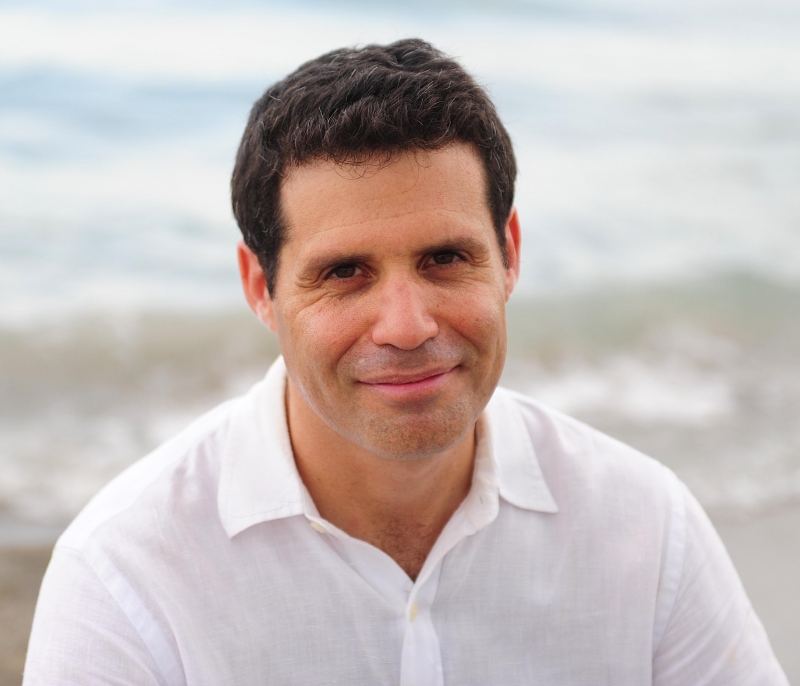New Initiative Helps Indigent Holocaust Survivors
New Initiative Helps Indigent Holocaust Survivors
 At the time of Germany's unconditional surrender on May 7, 1945 there were 3 million Jews in Europe (most of them were not recognized as holocaust survivors), a third of the number before the war. My paternal grandparents were among the survivors. They didn’t know each other before the war. They had lost their spouses, children, parents and siblings and were introduced to each other by someone who heard that they came from the same area in Poland. For them, as for most survivors, returning to life as it had been before the Holocaust was not an option. Jewish communities no longer existed in much of Europe, and those who tried to return to their homes from camps or hiding places found that their homes had been taken over by others. It is hard to believe, but in parts of Eastern Europe, the expected basic human reaction to the suffering, empathy and compassion towards the survivors was replaced with renewed hatred and new waves of antisemitism and pogroms.
At the time of Germany's unconditional surrender on May 7, 1945 there were 3 million Jews in Europe (most of them were not recognized as holocaust survivors), a third of the number before the war. My paternal grandparents were among the survivors. They didn’t know each other before the war. They had lost their spouses, children, parents and siblings and were introduced to each other by someone who heard that they came from the same area in Poland. For them, as for most survivors, returning to life as it had been before the Holocaust was not an option. Jewish communities no longer existed in much of Europe, and those who tried to return to their homes from camps or hiding places found that their homes had been taken over by others. It is hard to believe, but in parts of Eastern Europe, the expected basic human reaction to the suffering, empathy and compassion towards the survivors was replaced with renewed hatred and new waves of antisemitism and pogroms.
My grandparents ended up in a displaced persons' (DP) camp in Germany, where they had my father, but didn’t have anywhere to go until the establishment of the State of Israel on May 14, 1948. Officially, they are counted among the lucky ones who were able to build a new life for themselves. But recently I started to understand that even though they lived for over 30 years after the Holocaust, a large part of their souls had stopped living.
Unfortunately, many of the survivors ended up in a far worse situation, where even their basic needs of food and shelter were not met. Several months ago, when Ed Frankel told me about the staggering number of indigent survivors who live in Eastern Europe today I asked him to repeat himself, since I couldn’t believe how high it was. Leah and Ed launched a new initiative when Tikva (the home for Jewish children in Odessa) began helping some 3,000 Holocaust survivors living in Odessa. Their scope goes beyond providing the aging survivors with some basic needs. They want them to feel less isolated, socialize with peers and interact with the younger generation; enjoy musical and cultural programs and become part of the Jewish community. We need to help them, too.
There is a beautiful old tradition called Maot Chitim, when Jews gather wheat to provide the poor with matzot and other items for the observance of Passover. As you start planning for your Seder I would like to encourage you to include some fellow Jews who live 6,000 miles away but are still our sisters and brothers. Let us come together as a community to enrich the lives of survivors in Odessa, by sponsoring their Passover Seder. Your donation of $18 makes Passover possible for one person. To participate please send your check to the main office with Maot Chitim in the subject line by April 3.
B'Shalom,
Rabbi Alon Levkovitz
Thu, September 18 2025
25 Elul 5785
Upcoming Events
-
Thursday ,
SepSeptember 18 , 2025Seasons of Strength in Mussar
Thursday, Sep 18th 11:00a to 12:30p
-
Thursday ,
SepSeptember 18 , 2025Canasta
Thursday, Sep 18th 1:00p to 3:30p
-
Friday ,
SepSeptember 19 , 2025Round Challah Baking
Friday, Sep 19th 11:00a to 12:30p
-
Friday ,
SepSeptember 19 , 2025Shabbat Services
Friday, Sep 19th 6:30p to 7:30p
-
Saturday ,
SepSeptember 20 , 2025Men’s Club Dinner at Lila’s Coastal Mediterranean
Shabbat, Sep 20th 6:30p to 8:30p
-
Sunday ,
SepSeptember 21 , 2025High Holy Days Market
Sunday, Sep 21st 9:30a to 12:30p
-
Monday ,
SepSeptember 22 , 2025Men's Monday Weekly Lunches
Monday, Sep 22nd 12:00p to 2:00p
-
Monday ,
SepSeptember 22 , 2025Erev Rosh Hashanah Services
Monday, Sep 22nd 8:00p to 10:00p
-
Tuesday ,
SepSeptember 23 , 2025Rosh Hashanah Morning Services
Tuesday, Sep 23rd 10:00a to 12:00p
-
Tuesday ,
SepSeptember 23 , 2025Rosh Hashanah Children's Service
Tuesday, Sep 23rd 3:00p to 3:40p
Update this content.
Come Together
Something meaningful and dynamic is happening here at Temple Beth Am. It springs from the warmth of our welcome and the energy of our actions. We call it: Kulanu - All of Us Together.
Join UsUpcoming Events
-
Thursday ,
SepSeptember 18 , 2025Seasons of Strength in Mussar
Thursday, Sep 18th 11:00a to 12:30p
-
Thursday ,
SepSeptember 18 , 2025Canasta
Thursday, Sep 18th 1:00p to 3:30p
-
Friday ,
SepSeptember 19 , 2025Round Challah Baking
Friday, Sep 19th 11:00a to 12:30p
-
Friday ,
SepSeptember 19 , 2025Shabbat Services
Friday, Sep 19th 6:30p to 7:30p
-
Saturday ,
SepSeptember 20 , 2025Men’s Club Dinner at Lila’s Coastal Mediterranean
Shabbat, Sep 20th 6:30p to 8:30p
Privacy Settings | Privacy Policy | Member Terms
©2025 All rights reserved. Find out more about ShulCloud

